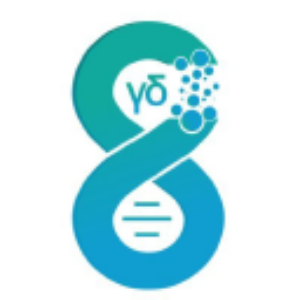IN8bio Reports Continued Durable Remissions in Phase 1 Trial of INB-200 in Plenary Oral Presentation at the Society for Neuro-Oncology (SNO) Annual Meeting
Rhea-AI Summary
IN8bio presented results from their fully enrolled Phase 1 trial of INB-200 at the Society for Neuro-Oncology Annual Meeting. 50% of patients receiving repeated doses (n=10) remained alive and in remission beyond expected median overall survival, while single-dose patients (n=3) did not achieve this outcome. The trial demonstrated that 92% of evaluable patients surpassed median standard-of-care progression-free survival (PFS) of 6.9 months. Notably, multi-dose cohorts showed improved peripheral T cell recovery, with one patient remaining progression-free at 40.5 months. Biopsy results confirmed gamma-delta T cell presence in the brain tumor microenvironment. The treatment showed no serious adverse events, with most common side effects being Grade 1-2 toxicities.
Positive
- 92% of evaluable patients exceeded standard-of-care PFS of 6.9 months
- 50% of patients receiving repeated doses remained alive and in remission
- One patient remains progression-free at 40.5 months post-treatment
- No treatment-related serious adverse events or dose-limiting toxicities reported
- Confirmed presence of gamma-delta T cells in tumor biopsies
Negative
- Single-dose patients (n=3) failed to achieve expected survival outcomes
- Grade 1-2 toxicities observed in white blood cell and platelet counts
News Market Reaction 1 Alert
On the day this news was published, INAB declined 4.35%, reflecting a moderate negative market reaction.
Data tracked by StockTitan Argus on the day of publication.
50% of patients who received repeated doses (n=10) remained alive and in remission beyond the expected median overall survival (OS) from standard-of-care Stupp regimen while none of the patients who received a single dose (n=3) achieved this outcome.
- Biopsy results confirmed the presence and persistence of gamma-delta T cells along with CD3+ and CD8+ T cells within the brain tumor microenvironment in two patients following treatment with INB-200.
- Patients in the multi-dose cohorts demonstrated a trend toward improved peripheral T cell recovery, suggesting potential immune system benefits.
- The majority of patients exceeded their expected progression free survival (PFS) based on age and tumor status; five patients remain alive and three patients have returned to their occupations, with one patient remaining progression free at 40.5 months post treatment.
NEW YORK, Nov. 25, 2024 (GLOBE NEWSWIRE) -- IN8bio, Inc. (Nasdaq: INAB), a clinical-stage biopharmaceutical company developing innovative gamma-delta T cell therapies, presented results from the fully enrolled Phase 1 trial of INB-200 in a plenary oral presentation at the 29th Annual Meeting of the Society for Neuro-Oncology in Houston, TX. The survival data along with histopathology and radiographic data are indicative of positive treatment effects, which highlight the potential of IN8bio’s genetically modified, chemotherapy-resistant gamma-delta T cells as a potential first-in-class therapy for patients with solid tumor cancers such as glioblastoma (GBM).
“As the clinical trial data continues to mature, this novel immuno-cell therapy leveraging gamma-delta T cells is highly feasible with a well-tolerated safety profile and biological evidence of improved immune surveillance in glioblastoma patients,” said Burt Nabors, M.D., Division Director, Neuro-Oncology at the Heersink School of Medicine at the University of Alabama at Birmingham.
“This novel treatment leverages the DNA damage induced by chemotherapy combined with genetically engineered gamma-delta T cells and we believe it represents a significant advancement in the treatment of solid tumor cancers such as GBM,” said William Ho, co-founder and CEO of IN8bio. “Glioblastomas are often classified as cold, immune desert tumors due to their limited immune cell infiltration. For the first time, we have confirmed the infiltration of gamma-delta T cells into these tumors through paired tissue biopsies following treatment with INB-200. We are encouraged by the patient follow-up with repeat dose patients demonstrating a
The Phase 1 trial assessed the safety and preliminary efficacy of the addition of DeltEx DRI gamma-delta T cells to maintenance therapy with TMZ. The trial assessed the administration of 1x107 cells per dose across three different dosing regimens increasing from a single dose in Cohort 1, three doses in Cohort 2, and six doses in Cohort 3. A total of 13 patients have been enrolled and treated with INB-200, including three patients in Cohort 1, four patients in Cohort 2 and six patients in Cohort 3.
Key findings from the INB-200 Phase 1 trial:
92% of evaluable patients treated with INB-200 for GBM surpassed a median standard-of-care (Stupp regimen) PFS of 6.9 months, with a majority exceeding their expected PFS based on their age and the MGMT status of their tumors.- One patient with an IDH-mutant glioma remains alive and progression free at over 40.5 months; IDH-mutant patients in a recently published clinical trial demonstrated a median PFS of 11.1 months in the control arm and 27.7 months in the experimental arm.
- No treatment-related serious adverse events, dose-limiting toxicities, cytokine release syndrome, infusion reactions, or immune effector cell-associated neurotoxicity syndrome have been reported in any cohort.
- The most common treatment emergent adverse events were Grade 1-2 toxicities consisting of white blood cell and platelet count decreases related to standard-of-care TMZ.
- Gamma-delta T cells and other immune subsets such as CD3+ and CD8+ T cells were found in relapsed tumor biopsies in two patients after treatment with INB-200, pointing to persistence of DRI gamma-delta T cells.
- Gamma-delta T cells were within the normal range post-resection and remained stable with repeated doses (Cohorts 2 and 3), whereas the gamma-delta T cells in Cohort 1 continued to drop after the maintenance cycles with TMZ were initiated. This implies that repeat dosing of gamma-delta T cells may globally benefit the peripheral immune environment.
- T cells were low prior to surgery, rose after resection and during the cell collection for the product, were below normal during chemotherapy, and in Cohorts 2 and 3 returned to the normal range following treatment.
- Radiographic evaluation pre- and post-treatment included resolution of midline shift in one patient with evidence of changes in enhancement attributed to treatment effect in multiple patients. One subject was found to have a
36% decrease in a lesion attributed to positive treatment effect.
About IN8bio
IN8bio is a clinical-stage biopharmaceutical company developing gamma-delta T cell-based immunotherapies for cancer patients. Gamma-delta T cells are a specialized population of T cells that possess unique properties, including the ability to differentiate between healthy and diseased tissue. The company’s lead program, INB-100, is focused on AML evaluating haplo-matched allogenic gamma-delta T cells given to patients following a hematopoietic stem cell transplant. The company is also evaluating autologous DeltEx DRI gamma-delta T cells, in combination with standard of care, for glioblastoma. For more information about IN8bio, visit www.IN8bio.com.
Forward Looking Statements
This press release may contain forward-looking statements made pursuant to the safe harbor provisions of the Private Securities Litigation Reform Act of 1995. These statements may be identified by words such as “aims,” “anticipates,” “believes,” “could,” “estimates,” “expects,” “forecasts,” “goal,” “intends,” “may,” “plans,” “possible,” “potential,” “seeks,” “will” and variations of these words or similar expressions that are intended to identify forward-looking statements, although not all forward-looking statements contain these words. Forward-looking statements in this press release include, but are not limited to, statements regarding: the potential of IN8bio’s genetically modified, chemotherapy-resistant gamma-delta T cells as a potential first-in-class therapy for patients with solid tumor cancers such as GBM; the potential of IN8bio’s DeltEx DRI gamma-delta T cells to extend PFS when administered in combination with the current standard of care used to treat newly diagnosed GBM patients; IN8bio’s ability to achieve anticipated milestones, including the advancement of clinical development plans; and other statements that are not historical fact. IN8bio may not actually achieve the plans, intentions or expectations disclosed in these forward-looking statements, and you should not place undue reliance on these forward-looking statements. Actual results or events could differ materially from the plans, intentions and expectations disclosed in these forward-looking statements as a result of various factors, including: risks to site initiation, clinical trial commencement, patient enrollment and follow-up, as well as IN8bio’s ability to meet anticipated deadlines and milestones; uncertainties inherent in the initiation and completion of preclinical studies and clinical trials and clinical development of IN8bio’s product candidates; the risk that IN8bio may be unable to raise additional capital and could be forced to delay, further reduce or to explore other strategic options for certain of our development programs, or even terminate its operations; IN8bio’s ability to continue to operate as a going concern; the risk that IN8bio may not realize the intended benefits of its DeltEx platform; availability and timing of results from preclinical studies and clinical trials; whether the outcomes of preclinical studies will be predictive of clinical trial results; whether initial or interim results from a clinical trial will be predictive of the final results of the trial or the results of future trials; the risk that trials and studies may be delayed and may not have satisfactory outcomes; potential adverse effects arising from the testing or use of IN8bio’s product candidates; the uncertainty of regulatory approvals to conduct trials or to market products; IN8bio’s reliance on third parties, including licensors and clinical research organizations; and other important factors, any of which could cause our actual results to differ from those contained in the forward-looking statements, are described in greater detail in the section entitled “Risk Factors” in our Quarterly Report on Form 10-Q filed with the Securities and Exchange Commission (SEC) on November 12, 2024, as well as in other filings IN8bio may make with the SEC in the future. Any forward-looking statements contained in this press release speak only as of the date hereof, and IN8bio expressly disclaims any obligation to update any forward-looking statements contained herein, whether because of any new information, future events, changed circumstances or otherwise, except as otherwise required by law.
Investor & Company Contacts:
Glenn Schulman, PharmD, MPH
Z3 BioCommunications, llc
203.494.7411
glenn@z3bio.com
Patrick McCall
IN8bio, Inc.
646.933.5603
pfmccall@IN8bio.com
Media Contact:
Kimberly Ha
KKH Advisors
917.291.5744
kimberly.ha@kkhadvisors.com








